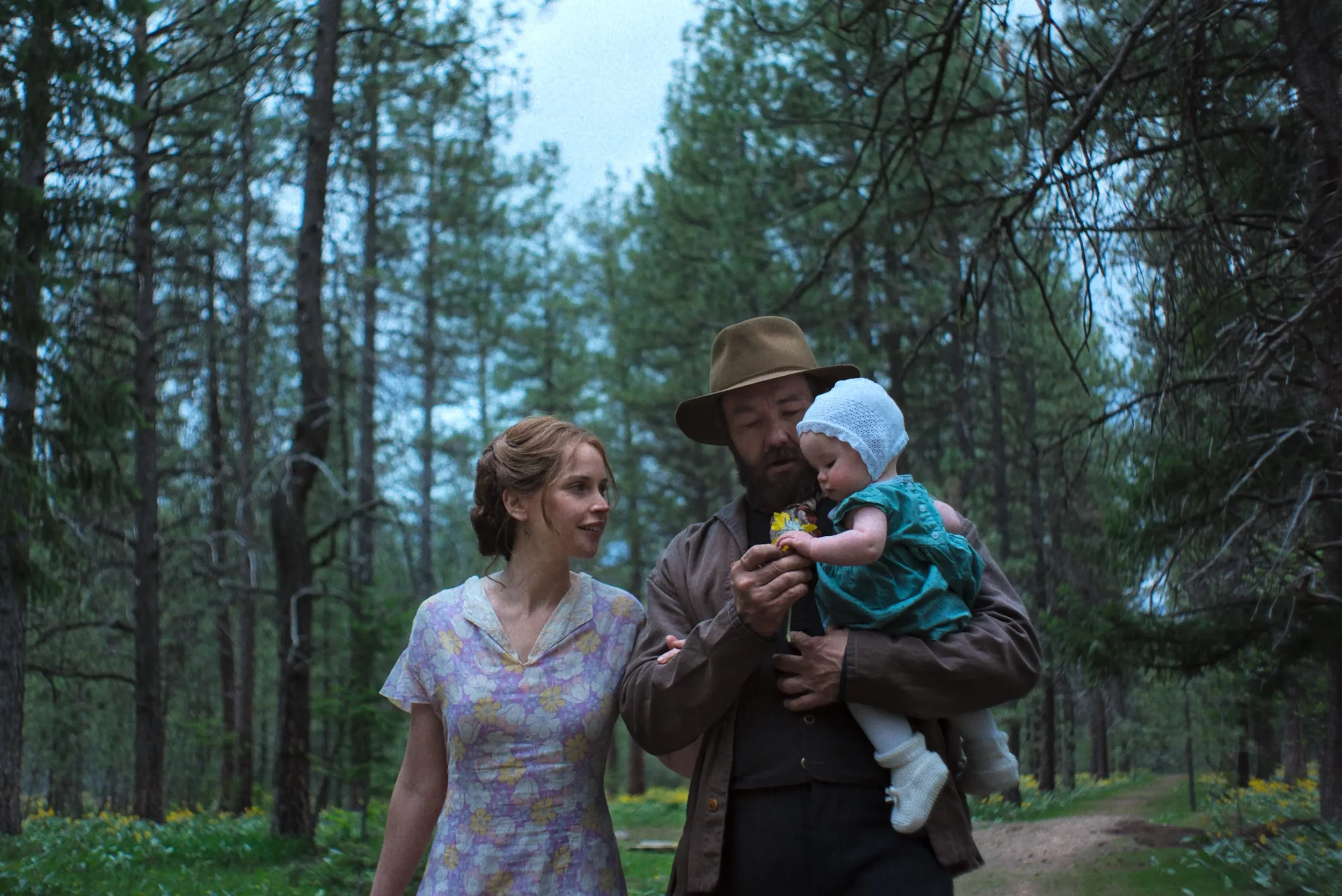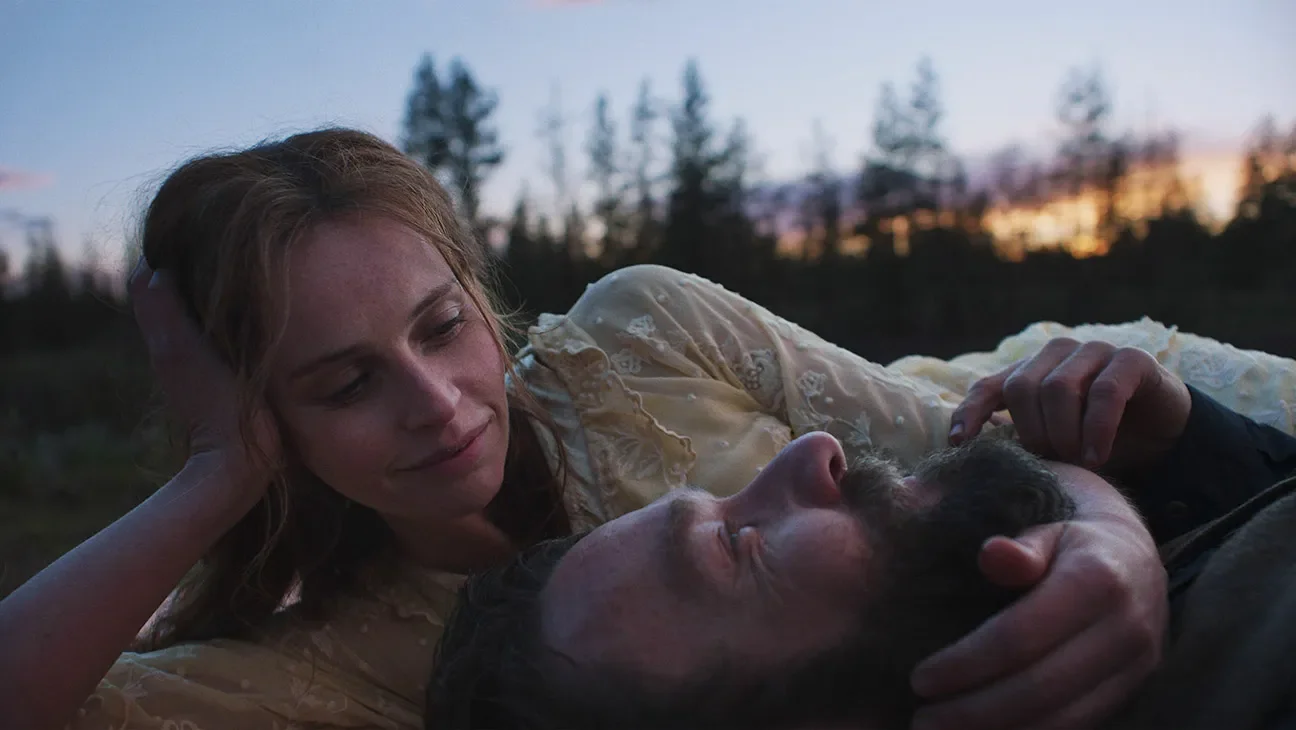‘Train Dreams’ Review: An Elegy on the Search for Meaning
Joel Edgerton delivers his best performance to date in Clint Bentley’s Train Dreams, a complex and emotionally powerful elegy for a lost soul searching for meaning in a life that has left him—and the contributions he made to society—behind.
Train Dreams is the year’s most devastating film. There’s no beating around the bush. Clint Bentley’s follow-up to 2021’s Jockey will shatter you in a thousand pieces by the time it reaches its unbelievable final scene, where its protagonist, Robert Grainier (Joel Edgerton), reflects on the passage of time in an era that has never recognized his contributions to society and left him behind, as if he never existed in the first place. It’s a poetic, often spiritually charged motion picture that deserves to be seen on the biggest possible screen. However, since Netflix is still going on its anti-cinema tirade, very few venues will project Bentley’s masterpiece (yes, masterpiece) at its highest power.
On the surface, Train Dreams didn’t seem like the movie that would emotionally grab me, only because I find the device of having a narrator (played by Will Patton) contextualize what’s occurring to the audience as a handholding mechanism never to allow us to think about Adolphe Veloso’s staggering 35mm photography communicating powerful ideas as Robert’s life further complexifies itself as the movie progresses. Yet, Patton’s voiceover narration is never that. It adds so much emotional texture to how we ultimately perceive the movie’s shattering finale, presenting Robert as a lost soul who wonders if what he’s built – for himself, his family, and society – was truly worth the sacrifices he made to pursue an impossible ideal.
Bentley’s movie tracks the development of the railroad system in America as Robert makes ends meet by constructing the rails that will eventually connect the country, to provide for his wife, Gladys (Felicity Jones), and daughter, Kate (Zoe Rose Short). Several instances make him confront the choices he’s making – the killing of a Chinese immigrant in front of him, nature taking back its rights to prevent railroad workers from completing the project, and personal tragedy changing the way he looks at the world – as the other workers pay no mind on the decisions they’re making now, which will inevitably impact the future.
Only one, explosives expert Arn Peeples (William H. Macy), realizes that, while the benefits of the railroad system will be fruitful for the country, the destruction of numerous trees and the soil that feeds the planet will cause a massive imbalance long after they’ve departed this Earth. One believes that if all the trees are destroyed, it would take thousands of years for people to accomplish this. The first one to be taken out will eventually regrow, but Arn warns him that this will not be the case, and that the more we take from nature, the more it will inevitably exact its revenge on us, mortal humans.
Robert has a taste of what this “revenge” sounds like – a warning, as the planet reduces everything he’s built to ash – and, as a result, stops working the railroads altogether. At that point, Bentley makes it clear that Train Dreams isn’t so much a movie about the advancement of society through the evolution of the railroad and the birth of gas-powered vehicles, but a film on humanity’s lack of compassion towards the elements that keep them alive. Of course, none of them know (or want to be confronted by) this inextricable fact, and they would rather turn a blind eye to what they’re doing to nature than realize how this “densification” will not do them any good as society enters its modern era.
Nature is harsher and far more unforgiving than the layperson thinks, and it took hundreds of years for humanity to (finally) realize this, as the climate has become more unstable thanks to our actions. When tragedy strikes Robert, he realizes what he’s done. He must now grapple with the consequences of his decisions, longing for a return to a more stable life with a family he would’ve loved to spend time with were it not for the work he had to do to financially support them and ensure Gladys has everything she needs to take care of Kate. Before anything genuinely dramatic occurs, Bentley and co-screenwriter Greg Kwedar hints at time passing by Robert, as he spends most of his life building a system most people won’t even realize took much labor (and destruction) to get built, by making him point how much his daughter has grown (and doesn’t even recognize her own father) every time he sees her.
It makes the midpoint denouement all the more heartbreaking for a man who has, up to this point, taken everything for granted and didn’t realize that what he is doing will permanently change the course of this planet. Revealing more would mean spoiling a dramatic turn that is sure to leave you in complete shock. However, it begins a journey of self-actualization that feels meaningless as Grainier reckons with “all of it. Every bit of it.” before moving on to his next chapter, which is essentially a reflection on what this world will become when he inevitably joins the soil. Because life, as it continues to move and ignore the speck of dust you’ll leave behind, will inevitably lead you to contemplate the choices you made and wonder why, for God’s sake, you’re still here and can’t move on.
Many will tell you it’s because you still have something to give, but when everyone else is ignoring you and the world itself has moved on, what are you still doing here? This is where Grainier meets Claire Thompson (Kerry Condon), and the two share poignant conversations about the state of this planet that may leave you in a puddle of tears before Bentley moves to his bravura finale where Robert sees what this world is like in a way he never did before, holding on to a plane, as his life flashes back before his eyes and is forced to sit, for the first time, with his decisions. All of this is, of course, devastatingly realized through a career-best turn from Edgerton, who, with subtle sullen looks, represents a litany of complex emotions that get further exacerbated by flashbacks of a potential future, realizing his insignificance in a society that has left him behind and will continue to take until this planet is no more.
His performance is also enhanced by a rich visual language that has frequently been compared to the work of Terrence Malick (most notably, Days of Heaven). Yet, I found it strangely Fordian (of course, with one specific image stolen from The Searchers), as we feel soaked by the rain, smell the burning ash falling on our clothes as we light the campfire, and taste gunpowder whenever a shot is fired. It’s as brutal as it is immensely poetic, immersing us in an America that we will no longer perceive by the time it reaches its final scene, distilling how the country will grow and forget most of the people who helped it reach the state of decay it now is perpetuating.
It’s the year’s most devastating film, not necessarily because of the character’s path (although it is incredibly sad), but in how it examines humanity’s failure to preserve what’s most important and only care about “evolution” in the most destructive sense of the word. It may not have been Bentley’s intended effect, especially with Patton’s narrator always focusing on Robert first and foremost. Still, it will definitely leave you with a lump in your throat by the time Nick Cave’s song fills the end credits and instill a sense of melancholy you’ll carry for the rest of your life…





